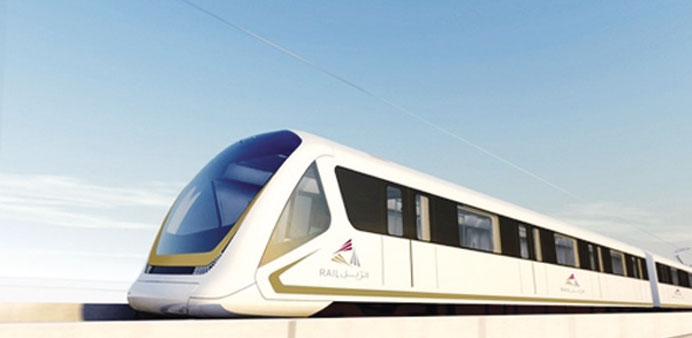Qatar’s large scale investments in infrastructure, including in Qatar Rail, is expected to have a positive “spin off” for the insurance sector.
By Santhosh V Perumal/Business Reporter
Domestic insurance industry, which has witnessed a slowdown year-on-year in net profits in the first quarter (Q1) of this year, appears to be bullish with Qatar Rail awarding a largest-ever deal to the Qatar Insurance Company-led consortium.
“This is a game changer. It is going to change the scenario in the domestic insurance industry, which has been facing margin erosion in the recent past,” a key official of a domestic insurance company, which is part of the consortium, told Gulf Times.
Qatar Rail - which is in the forefront of building a Doha Metro, Lusail Light Rail Transit and Long Distance Freight and Passenger – recently awarded the “single project tunnelling and rail construction” insurance to a consortium of national insurance companies that also include Qatar General and Reinsurance, Al Khaleej Takaful Group, Doha Insurance, Qatar Islamic Insurance and Al Koot Insurance and Reinsurance.
The cumulative net profitability of the five insurance companies grew 14% to QR434.21mn in the first three months of this year against 26% in the previous year period.
Al Khaleej Takaful, Qatar Islamic Insurance and Doha Insurance witnessed improvement in net profitability, whereas Qatar Insurance and Qatar General Insurance and Reinsurance witnessed slippages during the review period.
The multi-billion riyal insurance contract comes in view of Qatar Rail’s public private partnership model being adopted for the huge railway project. Having commenced the works, the first phase is expected to be operational by 2018.
“It will certainly help our top line growth,” the insurance official said, without disclosing details on the premium.
The listed companies’ cumulative gross insurance premium grew 3% year-on-year to QR1.62bn in the first three months of this year.
Referring to a vast majority (80%) of the risk being retained by the consortium, he said it rather reflected how the insurance companies viewed the project being carried out by Qatar Rail.
This comes at a time when there has been pressure on the pricing front, given the large competition in the small market, especially after the advent of many Qatar Financial Centre-based entities.
By and large, the premiums ceded by domestic insurers to reinsurance companies had been on the decline of late.
In the Gulf Co-operation Council (GCC), 46% of non-life premiums are ceded to reinsurance companies, according to a Middle East and North Africa Insurance Barometer of the Qatar Financial Centre.
At 57%, Qatar displays the highest cession rate in the GCC given the high share of large risks in energy, engineering and other commercial lines, the barometer had said.
“The significant participation by the local players in this major insurance programme demonstrates the strength of the domestic risk cover market and their potential to make robust contribution towards the overall economic development of Qatar, fully aligned with Qatar National Vision 2030,” according to Qatar Rail CEO Saad al-Muhannadi.
The increased participation of domestic companies comes at a time when many foreign players are currently reviewing their strategy towards the Mena region due to “inadequate” sectoral regulations.
Market sources held that Qatar’s large scale investments in infrastructure, including in Qatar Rail, is expected to have a positive “spin off” for the insurance sector, which now comes under the ambit of Qatar Central Bank as part of a single financial regulatory set up.

